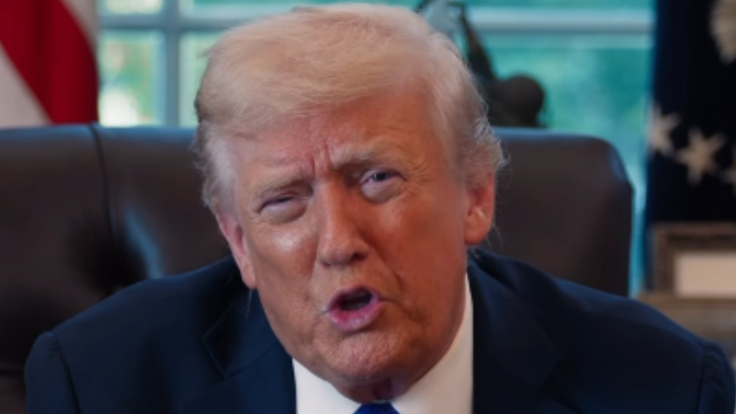Trump Backs $Billions F-35 Jet Sale to Saudi Crown Prince -- Raising Questions About Timing
Trump to approve potential F-35 sale to Saudi Arabia despite Israel's reservations and regional tensions

US President Donald Trump has confirmed he will approve the sale of F-35 fighter jets to Saudi Arabia. Crown Prince Mohammed bin Salman is expected to arrive in Washington on 18 November 2025, his first visit since 2018. However, the timing of the deal could stir diplomatic tensions in the Middle East.
The proposed sale involves the world's most advanced stealth fighter jets, a move that has drawn mixed reactions. Israel has indicated it will not oppose the transaction, provided the Kingdom normalises relations with the Jewish state. Some observers argue that the timing is problematic, given ongoing negotiations for a peace plan in Gaza that still requires Israel's support.
Despite the opposition, Trump stated, 'They want to buy them, they've been a great ally. I will say that we will be doing that, we'll be selling F-35s.' The sale signals a significant shift in US arms diplomacy in the region.
Security Guarantees and Regional Dynamics
Trump previously initiated a $23 billion arms deal involving F-35 jets with the United Arab Emirates. However, this was put on hold when Joe Biden became President in January 2021, amid questions from US senators about arms sales to Gulf nations, especially Saudi Arabia.
Israel remains the only Middle Eastern country with operational F-35 stealth fighters. It has expressed reservations about selling advanced jets to Saudi Arabia, which is closer to Jerusalem than the UAE. An Israeli official noted that the deal must include diplomatic deliverables; otherwise, proceeding could be a mistake for Trump.
In 2023, the US passed legislation providing at least $16.3 billion in military aid to Israel. This aid, rooted in the concept of Qualitative Military Edge (QME), has underpinned US support for Israel's military superiority for decades. However, Israel's military advantage may now be diminishing due to regional developments.
Jerusalem is likely to demand strict basing restrictions and new security guarantees from the US, aiming to preserve its military supremacy. US law explicitly enshrines the importance of maintaining Israel's QME, which influences military aid and strategic decisions.
National Security Concerns and Strategic Interests
If Trump decides against selling F-35s to Saudi Arabia, it could be due to concerns over national security, chiefly the risk of technology theft. The Defense Intelligence Agency is wary of Chinese spies potentially gaining access to the stealth jets. China and Saudi Arabia have cultivated strategic partnerships, including trade and technology cooperation.
Trump's favourable stance towards Crown Prince Mohammed bin Salman (MBS) remains strong. In May 2025, the White House secured a $600 billion investment commitment from Saudi Arabia, including $20 billion for AI data centres and energy infrastructure in the US. Additionally, the two countries signed a $142 billion defence sales agreement, involving advanced military equipment supplied by American firms.
Deal Breakers and Regional Implications
Saudi Arabia has long insisted that full normalization with Israel hinges on a 'credible, irreversible, and time-bound' path to Palestinian statehood. The international community broadly supports the creation of a Palestinian state alongside Israel for long-term stability. However, Prime Minister Benjamin Netanyahu has yet to commit to any such plan.
MBS's primary goal is to secure a bilateral defence pact with the US before returning to Riyadh. Yet, ongoing conflict in Gaza and Israel's firm stance against a Palestinian state remain major obstacles. The Gaza war and Israel's position may prove to be deal breakers for the US-Saudi rapprochement.
© Copyright IBTimes 2025. All rights reserved.




















